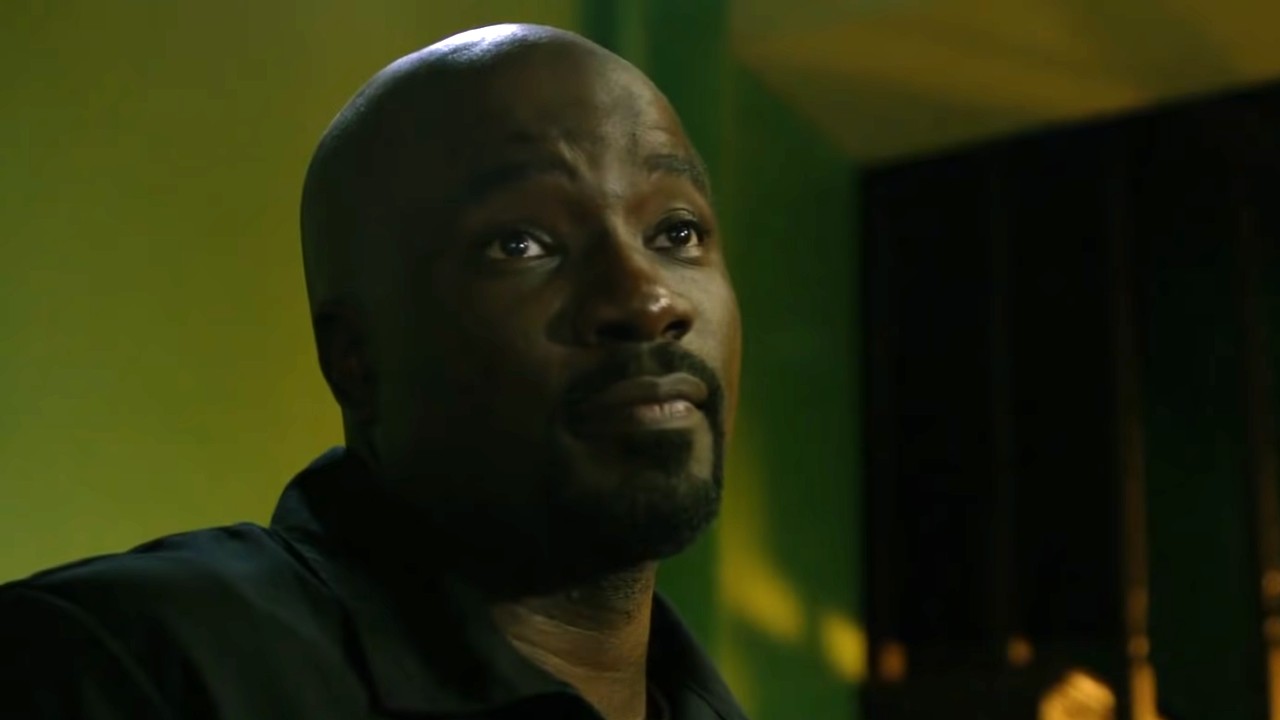Everly feels like the second half of a movie I had very little interest in finishing.
B-movie director Joe Lynch (Knights of Badassdom, the comic short Venom: Truth In Journalism) and screenwriter Yale Hannon choose an unexpected place in which to drop the audience as Everly begins. We’re in a bathroom, looking at the door. Outside, we hear screaming, mixed with crying. A naked Everly (Salma Hayek) stumbles in to the tiled restroom. She’s beaten and bloodied, but half of her wounds are old, suggesting an extended amount of torture. Hidden in the toilet tank, she finds a gun and a cell phone. The latter isn’t working, so she points the former to her head. Goons are kicking in the door. Everly pulls the trigger.
Seriously, is this the end of the movie?
I wish. What follows is a grisly, violent, ugly and ultimately pointless exercise in manifesting tension and achieving survival. For Everly; not for the numerous thugs she dispatches in brutally bloody fashion. Everly (Hayek), you see, is a prostitute being held captive by the criminal mastermind Taiko (Hiroyuki Watanabe). She has sensed an opening, a chance to escape this sadistic lifestyle. Only, Taiko isn’t ready to let her leave. “You will die in that room tonight, Everly,” Taiko tells our heroine over the telephone, sending wave after wave of colorful (but inept) killers to try and take her down – for a $50,000 reward.
Everly assigns itself a few strict rules that should have kept the film interesting. Lynch limits his bloody action to Everly’s apartment, swooping in and out of rooms with a feverish, cooped-up energy. Hayek’s character isn’t only trying to survive. She goes the extra mile to rescue her estranged mother (Laura Cepeda) and long-lost daughter (Aisha Ayameh), whom Taiko has threatened to kill.
Yet, even as Lynch tries to lay his ground rules, Everly calls the exaggerated reality of this hyperstylized experiment into question. Every time Everly is in danger, she conveniently manages to find a blade, gun or grenade where one wouldn’t be. (The last one, she uses to kill a dog in one of the film’s most tasteless sequences.) At one point, a thug who Everly supposedly killed early on in the film wakes up and starts talking, acting as a twisted verbal assistant for our overmatched protagonist. It’d be one thing is Everly was a cop, or an assassin. How did she become so versatile with this array of weapons? Can’t one trained killed on Taiko’s payroll bring this bloodied and beaten woman down?
The truth is that Everly isn’t innovative, smart or interesting enough to compete with the John Wicks and Kingsmans of the world. This is video-game cinema, where a tireless “warrior” marches through level after level of escalating, ridiculous threats (when we know full well that the danger is non-existent). The tone, also, never gels. There’s a painfully off-key sequence where Everly cleans up a living room full of dead bodies, which Lynch sets to the jangly tune of the holiday staple “Deck the Halls.” It’s the only mention (I heard) of Christmas time, and while it’s meant to be funny, it’s actually quite morbid.
Your Daily Blend of Entertainment News
Everly turned me off when a disgusting ogre named “The Sadist” showed up to challenge Everly to an empty battle. From that point on, “The Sadist” became the nickname I assigned to anyone who stayed with Everly until its end credits.

Sean O’Connell is a journalist and CinemaBlend’s Managing Editor. Having been with the site since 2011, Sean interviewed myriad directors, actors and producers, and created ReelBlend, which he proudly cohosts with Jake Hamilton and Kevin McCarthy. And he's the author of RELEASE THE SNYDER CUT, the Spider-Man history book WITH GREAT POWER, and an upcoming book about Bruce Willis.

